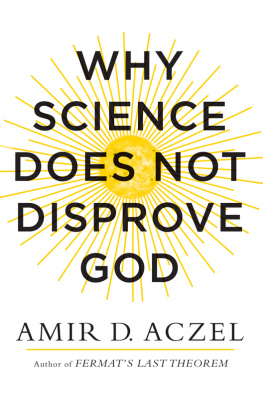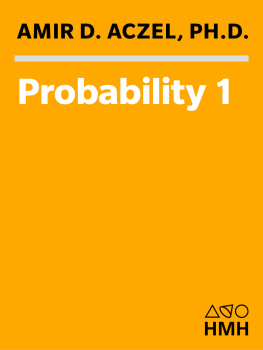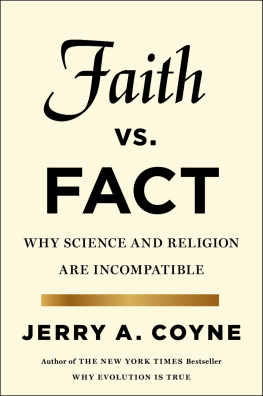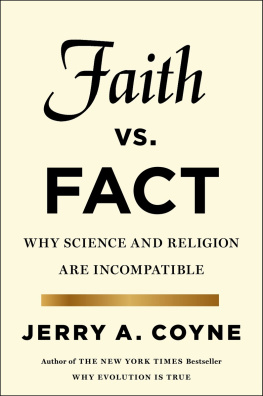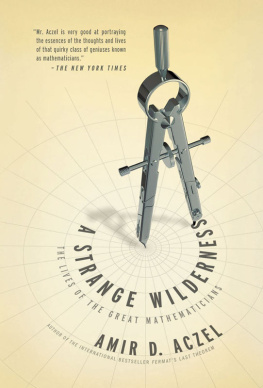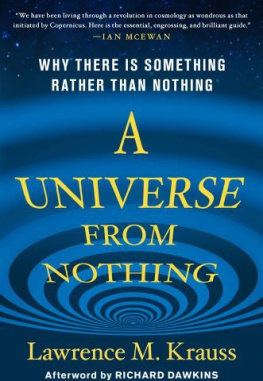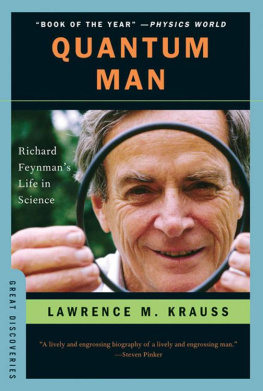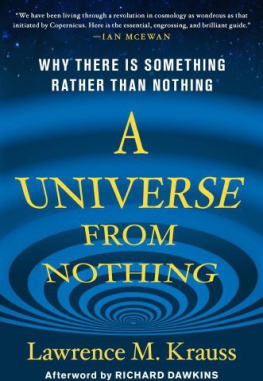Australia
HarperCollins Publishers (Australia) Pty. Ltd.
Level 13, 201 Elizabeth Street
Sydney, NSW 2000, Australia
http://www.harpercollins.com.au
Canada
HarperCollins Canada
2 Bloor Street East - 20th Floor
Toronto, ON, M4W, 1A8, Canada
http://www.harpercollins.ca
New Zealand
HarperCollins Publishers (New Zealand) Limited
P.O. Box 1
Auckland, New Zealand
http://www.harpercollins.co.nz
United Kingdom
HarperCollins Publishers Ltd.
77-85 Fulham Palace Road
London, W6 8JB, UK
http://www.harpercollins.co.uk
United States
HarperCollins Publishers Inc.
10 East 53rd Street
New York, NY 10022
http://www.harpercollins.com
Fermats Last Theorem
The Mystery of the Aleph
The Riddle of the Compass
Descartess Secret Notebook
Probability 1
Chance
The Jesuit and the Skull
Uranium Wars
The Cave and the Cathedral
Entanglement
Gods Equation
The Artist and the Mathematician
Pendulum
Statistics
Present at the Creation
A Strange Wilderness
This list contains books that are quoted in this work or were consulted by the author in its preparation. Scientific articles, lectures, and other less-accessible sources of information appear only in the notes.
Aczel, Amir D. Gods Equation: Einstein, Relativity, and the Expanding Universe . New York: Basic Books, 1999.
. The Mystery of the Aleph: Mathematics, Kabbalah, and the Search for Infinity . New York: Basic Books, 2000.
. Entanglement: The Greatest Mystery in Physics . New York: Basic Books, 2002.
. Pendulum: Lon Foucault and the Triumph of Science . New York: Atria, 2003.
. Descartess Secret Notebook . New York: Broadway, 2005.
. The Cave and the Cathedral: How a Real-Life Indiana Jones and a Renegade Scholar Decoded the Ancient Art of Man . New York: Wiley, 2009.
. A Strange Wilderness: The Lives of the Great Mathematicians . New York: Sterling, 2012.
Arsuaga, Juan Luis. The Neanderthals Necklace: In Search of the First Thinkers. Translated by Andy Klatt. New York: Four Walls Eight Windows, 2002.
Barrow, John D. Pi in the Sky: Counting, Thinking, and Being . New York: Little, Brown, 1992.
De Beaune, Sophie A. Les hommes au temps de Lascaux . Paris: Hachette, 1995.
Bell, Eric Temple. Men of Mathematics . New York: Simon and Schuster, 1937.
Bell, John S. Speakable and Unspeakable in Quantum Mechanics . New York: Cambridge University Press, 1993.
Berra, Tim M. Evolution and the Myth of Creationism . Stanford, CA: Stanford University Press, 1990.
Boaz, Noel T., and Russell L. Ciochon. Dragon Bone Hill: An Ice-Age Saga of Homo Erectus . New York: Oxford University Press, 2004.
Bohm, David. Causality and Chance in Modern Physics . Foreword by Louis de Broglie. Philadelphia: University of Pennsylvania Press, 1957.
. Quantum Theory . New York: Dover, 1989.
Bonola, Roberto. Non-Euclidean Geometry . New York: Dover, 1955.
Born, Max. Einsteins Theory of Relativity . New York: Dover, 1962.
Boslough, John. Beyond the Black Hole: Stephen Hawkings Universe . Glasgow, UK: Fontana/Collins, 1984.
De Botton, Alain. Religion for Atheists: A Non-Believers Guide to the Uses of Religion . New York: Pantheon, 2012.
Box, George E. P., and George C. Tiao. Bayesian Inference in Statistical Analysis . Reading, MA: Addison-Wesley, 1973.
Boyer, Carl, and Uta Merzbach. A History of Mathematics . Second Edition. New York: Wiley, 1993.
Calaprice, Alice. Dear Professor Einstein: Albert Einsteins Letters to and from Children . New York: Prometheus, 2002.
Carroll, James. Constantines Sword: The Church and the JewsA History . New York: Mariner, 2001.
Cauvin, Jacques. Naissance des divinits, naissance de lagriculture . Paris: Flammarion, 1997.
Charraud, Nathalie. Infini et inconscient: Essai sur Georg Cantor . Paris: Anthropos, 1994.
Ciufolini, Ignazio, and John Archibald Wheeler. Gravitation and Inertia . Princeton, NJ: Princeton University Press, 1995.
Clark, Ronald W. Einstein: The Life and Times . New York: Avon, 1972.
Close, Frank. The Infinity Puzzle . New York: Basic Books, 2011.
Cohen, Claudine. La femme des origines: Images de la femme dans la prhistoire occidentale . Paris: Belin-Herscher, 2003.
Cole, K. C. The Universe and the Teacup: The Mathematics of Truth and Beauty . New York: Harcourt Brace, 1998.
Collins, Francis S. The Language of God: A Scientist Presents Evidence for Belief . New York: Free Press, 2007.
Croswell, Ken. Planet Quest: The Epic Discovery of Alien Solar Systems . New York: Free Press, 1997.
Darwin, Charles. On the Origin of Species . New York: Barnes and Noble, 2004 (reprint of the 1859 edition).
David, F. N. Games, Gods, and Gambling: A History of Probability and Statistical Ideas . New York: Dover, 1998.
Davies, Paul. The Mind of God . New York: Simon and Schuster, 1991.
. About Time: Einsteins Unfinished Revolution . New York: Simon and Schuster, 1995.
Dawkins, Richard. The God Delusion . New York: Houghton Mifflin Harcourt, 2006.
. The Selfish Gene . New York: Oxford University Press, 1989.
Dawson, John W., Jr. Logical Dilemmas: The Life and Work of Kurt Gdel . Wellesley, MA: A. K. Peters, 1997.
Dayagi-Mendels, M., and S. Rozenberg, eds. Chronicles of the Land: Archaeology in the Israel Museum, Jerusalem. Jerusalem: The Israel Museum, 2011.
Dennett, Daniel. Consciousness Explained . New York: Little, Brown, 1991.
. Darwins Dangerous Idea . New York: Simon and Schuster, 1995.
Descartes, Ren. Oeuvres philosophiques . Volume I: 16181637. Paris: Garnier, 1997.
Dirac, Paul A. M. The Principles of Quantum Mechanics . Fourth Edition. New York: Oxford University Press, 1958.
Einstein, Albert. Relativity: The Special and the General Theory . New York: Crown, 1961.
Einstein, Albert, A. Lorentz, Hermann Weil, and H. Minkowski. The Principle of Relativity . New York: Dover, 1952.
dEspagnat, Bernard. On Physics and Philosophy . Princeton, NJ: Princeton University Press, 2006.
Ferguson, Kitty. Stephen Hawking: An Unfettered Mind . New York: Palgrave/Macmillan, 2012.
Feynman, Richard P. QED: The Strange Theory of Light and Matter . Princeton, NJ: Princeton University Press, 1985.
. The Character of Physical Law. Cambridge, MA: MIT Press, 2001.
. Six Not-So-Easy Pieces. New York: Basic Books, 2011.
Flsing, Albrecht. Albert Einstein . New York: Penguin, 1998.
Frank, Philipp. Einstein: His Life and Times . Translated by George Rosen. New York: Da Capo, 1989.
Freeman, Charles. A.D. 381: Heretics, Pagans, and the Dawn of the Monotheistic State . New York: Overlook, 2008
French, A. P., and Edwin F. Taylor. An Introduction to Quantum Physics . New York: Norton, 1978.
Freund, Jrgen. Special Relativity for Beginners . Singapore: World Scientific, 2008.
Gapaillard, Jacques. Et pourtant elle tourne!: Le mouvement de la Terre . Paris: Seuil, 1993.
Geroch, Robert. Mathematical Physics . Chicago, IL: The University of Chicago Press, 1985.
Gilmore, Robert. Lie Groups, Lie Algebras, and Some of Their Applications . New York: Dover, 2002.
Gingerich, Owen. The Book Nobody Read: Chasing the Revolutions of Nicolaus Copernicus . New York: Walker, 2004.
Gdel, Kurt. Collected Works . Volume II, Publications 19381974. Edited by Solomon Feferman, et al. New York: Oxford University Press, 1990.
Goldsmith, Donald. Einsteins Greatest Blunder? The Cosmological Constant and Other Fudge Factors in the Physics of the Universe . Cambridge, MA: Harvard University Press, 1995.
Gondhalekar, Prabhakar. The Grip of Gravity: The Quest to Understand the Laws of Motion and Gravitation. New York: Cambridge University Press, 2001.
Next page
